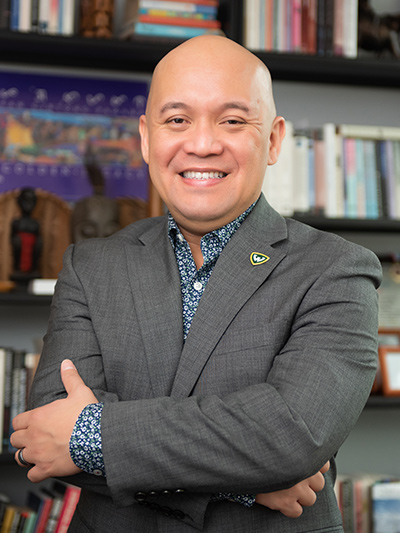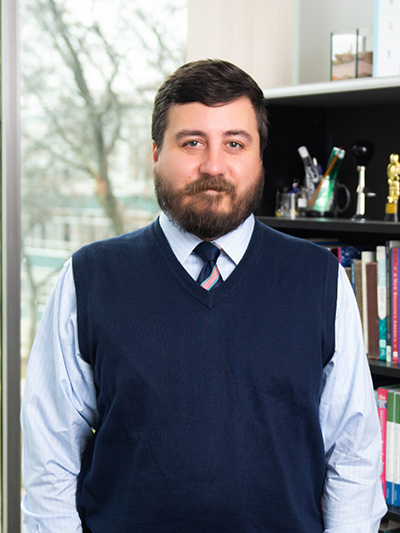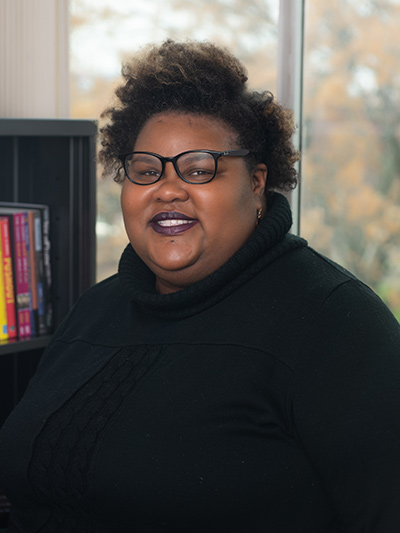Division of Teacher Education awarded $100,000 grant to engage young people in “Shifting Urban Narratives”

The Wayne State University College of Education’s Division of Teacher Education was one of 28 organizations awarded $100,000 to elevate diverse voices and broaden the national conversation about poverty and economic mobility through the Gates Foundation’s Voices for Economic Opportunity Grand Challenge. The Grand Challenge strives to establish ways to offer alternatives to conflicting accounts about what poverty is, why it happens, to whom it happens and how to address it. Wayne State’s project is sponsored by the Schultz Family Foundation, one of the participating philanthropic organizations.
“Shifting Urban Narratives” will engage youth to chart the future of America through multimedia. It will celebrate stories of young change-makers who are dealing with the pandemic while seeking to inspire leadership and resilience, educate others about responsible citizenship and uncover various pathways of economic success and food security.
“COVID-19 has disproportionately affected people of color and low-income populations in Detroit,” said Roland Sintos Coloma, Ph.D., professor of teacher education and principal investigator. “Detroit is home to families and communities who know what it means to persevere in the midst of adversity. We want to highlight their experiences and their ability to turn obstacles into opportunities in areas such as community development, food security, and entrepreneurship during this challenging time. We can leverage their knowledge to build capacity and generate a model for others to follow.”

The 16-month project will engage up to 15 diverse young people between the ages of 18 and 24 who are involved in transformative projects around the city. Participants will document their realities using a camera with photo and video options, with the goal of capturing moments in various urban locations that contribute to their sense of success, belonging and efficacy. Participants will include educational and/or community organizations in Detroit in which they are actively involved or interested in exploring. Rather than only looking at the “why” and the “what” of Detroit’s situation, youth will ask “what if” and “why not” as they produce their shifting urban narratives. By highlighting particular experiences and contexts, especially during this pandemic, investigators can learn what drives their growth, creativity and interest in initiatives with consequential economic and social impact.
Participants will also learn as they teach. While they produce their narratives, young people will receive ongoing training and support in relation to the project’s goals and use of technology. They will work with seasoned documentarians and video and graphic editors on the latest techniques and skills for capturing photos and videos, translating experiences to multimedia narratives and presenting key points in publicly accessible ways.
“The purpose of this project is not only to showcase the stories of young people in Detroit but also to equip them with viable skills they can use beyond this initiative,” said Christopher Crowley, Ph.D., assistant professor of teacher education. “Participants will be engaged throughout the stages of multimedia production to ensure final products reflect their vision and to help them develop skills that will contribute to their academic success and employability.”

At the end of the project, storytellers will work with video and graphic editors to produce a documentary and photo collages that reflect their experiences and vision, which will be presented at a public exhibition at the university or a local museum. The project will also feature educational and community organizations that supported participants and established pathways of economic success, especially for marginalized youth.
“Giving participants the chance to share their stories with the community and the public is integral to the success of this project,” said Aja Reynolds, Ph.D., visiting assistant professor of urban education and critical race studies. “It is important to show our young people, community organizations and others that they are a source of Detroit’s pride, resilience, and strength. Their stories, experiences and lives have purpose and meaning — and they matter.”